2024 Symposium on Smart and Autonomous Medical Systems (SaAMS)
Speakers
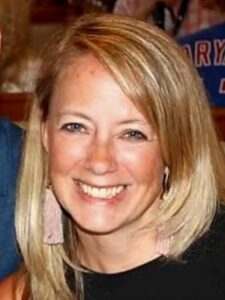
Heather Agler, PhD
Senior Science Health Advisor, Medical Countermeasure Innovation Program Lead
Center for Devices and Radiological Health
Heather Agler is a Senior Science Health Advisor in the Division of All Hazard Preparedness Response (DAPR) in FDA’s Center for Devices Radiological Health and has been working for the FDA for 19 years. As the lead of the Medical Countermeasure Innovation Program, Dr. Agler works as a liaison to government agencies on the medical device development needs. She works with agencies, academia, industry, and the CDRH review divisions to reduce the regulatory hurdles that often accompany bringing new, high-risk / high-benefit, medical countermeasure technology to market. At the beginning of the COVID-19 pandemic response, Dr. Agler worked on ways to make ventilators accessible and on the emergency use authorization process. Before joining DAPR, she worked on interoperability of medical devices, wireless technology in medical devices, digital health, and device classification. Dr. Agler was also an engineering reviewer and lead reviewer in the Office of Device Evaluation/CDRH/FDA. She reviewed interventional cardiology devices such as drug-eluting stents and cardiac occluders in the Division of Cardiovascular Devices. Prior to her work at the FDA, Dr. Agler was Christine Mirzayan Fellow at the National Academies. She also received a National Science Foundation Fellowship for graduate school. Dr. Agler has a B.S. in chemical engineering from the University of South Carolina and a Ph.D. in biomedical engineering from the Johns Hopkins School of Medicine.
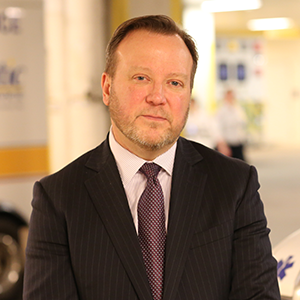
Paul Biddinger, M.D., FACEP
Chief Preparedness and Continuity Officer
Mass General Brigham
PAUL BIDDINGER, M.D., FACEP, is the Chief Preparedness and Continuity Officer at Mass General Brigham (MGB) and the Chief of the Division of Emergency Preparedness in the Department of Emergency Medicine at MGB. He holds the Ann L. Prestipino MPH Endowed Chair in Emergency Preparedness and is also the Director of the Center for Disaster Medicine. Dr. Biddinger additionally serves as the Director of the Emergency Preparedness Research, Evaluation, and Practice (EPREP) Program at the Harvard T. H. Chan School of Public Health and holds appointments at Harvard Medical School and at the Chan School. Dr. Biddinger serves as a medical officer for the MA-1 Disaster Medical Assistance Team (DMAT) in the National Disaster Medical System (NDMS) in the US Department of Health and Human Services (HHS). Dr. Biddinger is an active researcher in the field of emergency preparedness and has lectured nationally and internationally on topics of preparedness and disaster medicine. He has authored numerous articles and book chapters on multiple topics related to disaster medicine and emergency medical operations and has responded to numerous prior disaster events, including Hurricane Katrina, Superstorm Sandy, the Boston Marathon bombings, the Nepal earthquakes, and many others. He completed his undergraduate study in international relations at Princeton University, attended medical school at Vanderbilt University, and completed residency training in emergency medicine at Harvard.
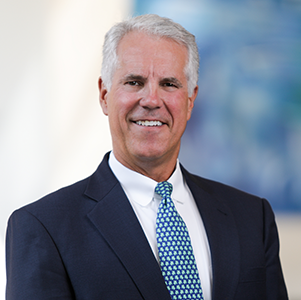
Christopher M. Coburn
Chief Innovation Officer
Mass General Brigham
Chris Coburn is Chief Innovation Officer, Mass General Brigham, an integrated health care system that includes Harvard University affiliates Brigham and Women’s Hospital, Massachusetts General Hospital, Massachusetts Eye and Ear, and McLean Hospital. Mass General Brigham is the nation’s largest academic research enterprise with over $16 billion in annual revenue, 1.5 million patient visits and more than $2.4 billion in research expenditures. It also has a managed care organization, out-patient facilities and community hospitals. 7,000 of its faculty are appointed at Harvard Medical School. A member of the senior leadership team, Coburn is responsible for the commercial application of the unique capabilities of MGB’s 85,000 employees. His 140 person business development group’s activities include strategic industry collaborations, company creation, investing, translational development, commercial strategy setting, licensing, and innovation management. His group also manages a nearly $500 million venture fund. Prior to joining Mass General Brigham, Mr. Coburn was founding director of Cleveland Clinic Innovations and served for 13 years as its executive leader. During his tenure, Cleveland Clinic spun off 57 companies that raised more than $700 million in equity financing. There were none before Coburn’s arrival. His team also managed an innovation alliance network in which Cleveland Clinic directly supported technology commercialization for healthcare systems throughout the United States. Previously he was Vice President at Battelle and served on the staff of Ohio Governor Richard Celeste. Mr. Coburn serves on multiple boards. He and his wife Nancy have three grown children
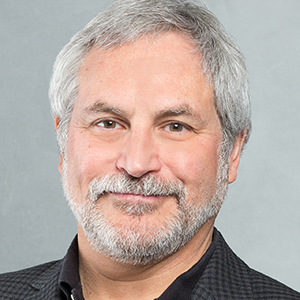
Steven Dain MD, FRCPC
Chief Medical Informatics Officer
DocBox Inc
Steven Dain MD, FRCPC is currently the Chief Medical Informatics Officer at DocBox Inc, www.docboxmed.com, a semi-retired anesthesiologist and Adjunct Professor, Systems Design Engineering and the Centre for Bioengineering and Biotechnology at the University of Waterloo, Ontario Canada. He has practiced anesthesiology and perioperative medicine for over 35 years in southwestern Ontario, Canada. He is a retired Associate Professor of Anesthesia and Perioperative Medicine at the Schulich School of Medicine and Dentistry, Western University, London, Ontario Canada.
Dr Dain’s research for the past 30 years is at the nexus of medical practice and technology. How can computer technology be leveraged in anesthesia and critical care. Much of his work has been in collaboration with the MD PnP — the Medical Device “Plug-and-Play” Interoperability & Cybersecurity Program at the Massachusetts General Hospital developing the “Patient-centric integrated clinical environment” which creates a bedside micro-network of interoperable, time synchronized medical devices as a platform for automation of medical records, tele-critical care, remote control, and autonomous care.
At the University of Waterloo, he has mentored undergrads, grad students and postdocs in their projects, primarily in usability of medical devices. For over 25 years, Dr. Dain has participated in the writing and development of Canadian National and International Standards for medical equipment (ISO and IEC), medical device communications (IEEE) and design and construction of healthcare facilities (CSA). In January 2018, he was appointed Chair of the Organization for International Standardization (ISO) Technical Committee 121 Anesthetic and respiratory equipment, with over 50 participating and observing member nations, overseeing over 100 published ISO standards and 44 standards under development.
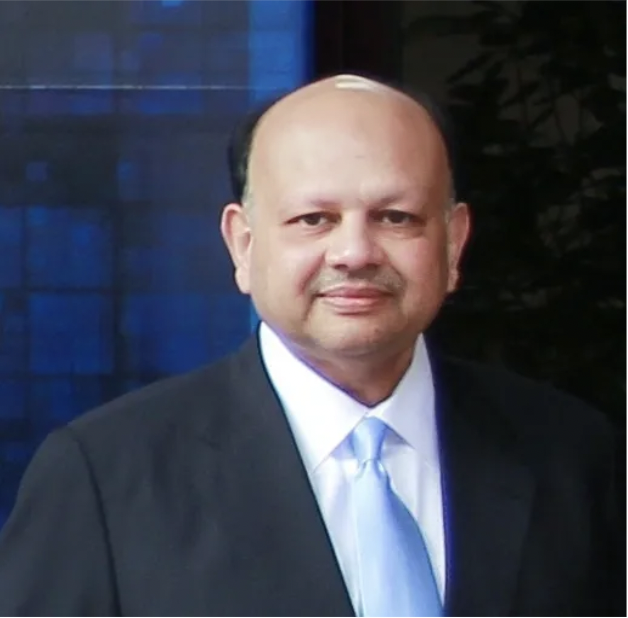
Shoumen Datta, PhD
Senior Scientist
Massachusetts General Hospital and Massachusetts Institute of Technology
Dr Shoumen Palit Austin Datta is a Senior Member of the MIT Auto-ID Labs, Research Affiliate at the Department of Mechanical Engineering, Massachusetts Institute of Technology (MIT) and Senior Scientist, Medical Device Interoperability Lab and Cybersecurity Program, Department of Anesthesiology, Massachusetts General Hospital, Harvard Medical School. He was the founding Senior Vice President for the Industrial Internet Consortium (IIC). He has authored books, papers, articles related to evolution of IoT and the industrial internet (2003), intelligent software agents (2001), predictive analytics, supply chain management, sensors in public health (SARS-CoV-2), healthcare platforms, energy, digital transformation. He has served/serves as an advisor for start-ups, corporations and governments including US Dept of Defense, US Dept of Commerce, United Nations (UNDP), World Customs Organization (WCO), President’s Science and Technology Advisory Group (PSTAG) for the President of Taiwan (ROC), TEKES (Government of Finland), etc. He earned his BSc (Biochemistry, Physiology, Physics, Chemistry) from the Presidency College, University of Calcutta. He attended University of Pittsburgh & earned his PhD from Rutgers University School of Medicine in collaboration with Dept of Molecular Biology at Princeton University. He was a Research Fellow in Medicine (Thyroid and Neuro-Endocrine Labs, Molecular Oncology) at MGH (Massachusetts General Hospital) and Instructor in Medicine at Harvard Medical School (HMS). He was a Research Associate at the Whitehead Institute at MIT and a founding member of the MIT Human Genome Project. He was a Research Scientist in Molecular Parasitology at University of California UCSF School of Medicine, San Francisco, California. Currently he is an advisor to NIH funded research related to CoVID-19.

Anura Fernando
Global Head of Medical Device Security
UL Solutions
Anura Fernando brings academic background in Software Engineering, Electrical Engineering, Biology, Chemistry, and clinical medicine as well as over 25 years of experience solving product and system reliability, safety, and security problems to his current role as UL Solutions’ Global Head of Medical Device Security and Principal Security Advisor.
Anura has also served as the Director of Product Security and Principal Security Architect for a globally deployed, regulatory compliant, multi-cloud Digital Health platform that uses a variety of cutting-edge cloud computing technologies, AI/ML, and medical IoT to brings doctors, patients, drug researchers and biotechnologists together enabling precision medicine, genomics, medication compliance, and remote patient monitoring to converge in ways that bring new insights to help innovate in areas like the treatment of rare diseases afflicting very small populations of globally distributed patients, who might otherwise not receive adequate care.
Anura has conducted research leading to standardization and conformity assessment programs across a number of domains of Safety Science such as Medical Devices, Health Information Technologies, Electric Vehicles, Factory Automation, Robotics, Appliances, Wind Turbines, Fuel Cells, Photovoltaics, Energy Storage, Elevators, Combustion Controls, Avionics, Space Launch and Operations Systems, etc. In addition to serving on numerous UL, IEC, ISO, AAMI, ASME, CTA, IEEE, DTSec and other standards committees, Anura has also served as an IECEE Expert Task Force (ETF1) member as well as on the HHS Health Care Industry Cybersecurity Task Force (US Federal Operational Committee), Health Care Sector Coordinating Council, US Federal Advisory Committee FDASIA WG to the Health IT Policy Committee, FDA Medical Device Interoperability Coordinating Council, Medical Device Interoperability Safety Working Group, QMDI Advisory Board, NIH PRISMS Expert Committee, etc…
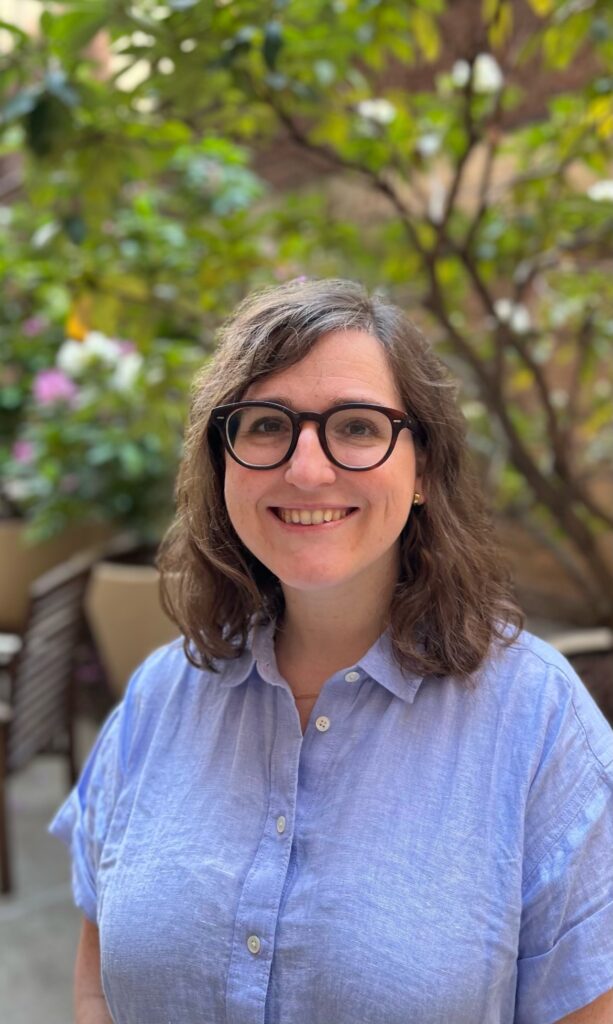
Ariella Goldman, MD, MPH
Assistant Professor OBGYN
Mount Sinai Hospital
Ariella Goldman, MD, MPH, is a board certified obstetrician-gynecologist with subspecialty training in Complex Family Planning. Dr. Goldman holds the appointment of Assistant Professor in the Division of Complex Family Planning in the Department of Obstetrics, Gynecology, and Reproductive Science at the Icahn School of Medicine at Mount Sinai Hospital.
Dr. Goldman received her medical degree from Case Western Reserve University School of Medicine and a Master of Public Health in Health Policy and Management from the Mailman School of Public Health at Columbia University. She completed her residency in obstetrics and gynecology, and fellowship in Complex Family Planning, at the Icahn School of Medicine at Mount Sinai.
Dr. Goldman is a Fellow of the American College of Obstetricians and Gynecologists, as well as a Fellow of the Society of Family Planning. She previously conceptualized and presented a closed-loop medication system to improve patient safety on Labor and Delivery.
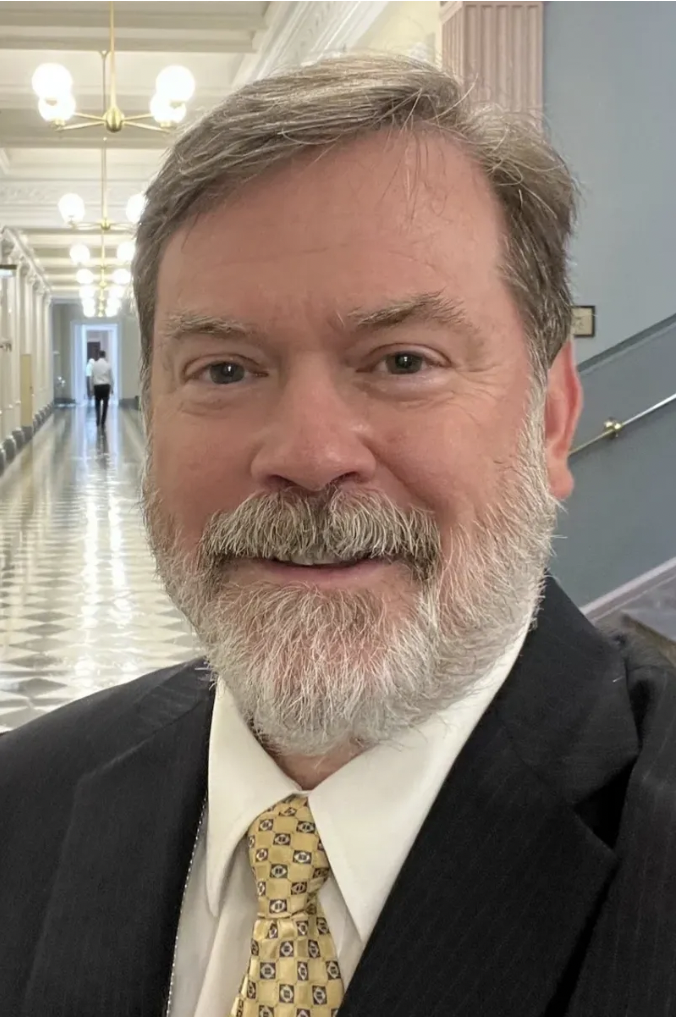
Julian M. Goldman, MD
Anesthesiologist and Director
Medical Device “Plug & Play” Interoperability & Cybersecurity Program and Center for Smart & Autonomous Systems Massachusetts General Hospital Department of Anesthesia, Critical Care and Pain Medicine
Julian M. Goldman, MD is an attending anesthesiologist at the Massachusetts General Hospital Dept. of Anesthesia, Critical Care and Pain Medicine, Founder and Director of the Program on Medical Device Interoperability & Cybersecurity (MD PnP), and Medical Director of Biomedical Engineering for Mass General Brigham health system. Dr. Goldman founded the MD PnP Program in 2004 to promote innovation in patient safety and clinical care by leading the development and adoption of patient-centric integrated clinical environments. The program’s new Center for Smart and Autonomous Medical Systems (SaAMS) is addressing technology, standards, and safety for remote and closed loop medical device systems.
Dr. Goldman is Board Certified in Anesthesiology and Clinical Informatics and is a Fellow of the American Society of Anesthesiologists (FASA). He completed anesthesiology residency and a research fellowship in medical device informatics (AI-based real-time patient monitoring) at the University of Colorado. He departed Colorado as a tenured associate professor to work as chief medical officer of a medical device company. Subsequently, Dr. Goldman joined the Harvard Medical School and the Department of Anesthesia, Critical Care, and Pain Medicine at MGH to serve as a principal anesthesiologist in the MGH “Operating Room of the Future”.
Dr. Goldman served as a Visiting Scholar in the FDA Medical Device Fellowship Program, co-chaired the FCC mHealth Task Force, the HIT Policy Committee FDASIA Workgroup regulatory subgroup, and the FCC Consumer Advisory Committee healthcare working group. He served on the NSF CISE Advisory Committee and as a member of the CDC Board of Scientific Counselors for the National Center for Public Health Informatics.
Dr. Goldman serves in leadership positions in several healthcare standardization and innovation organizations. These include Convener of the Joint Working Group on Physiologic Closed-Loop Controllers since its inception, immediate past Chair of ISO Technical Committee 121 on Anesthetic and Respiratory Equipment and chair of the Working Group on cybersecurity, Executive Committee member of the Healthcare and Public Health Sector Coordinating Council Cybersecurity Working Group, and Co-Chair of the AAMI Interoperability Working Group and AAMI COVID-19 Response Team. He is a member of the Anesthesia Patient Safety Foundation Committee on Technology and American Society of Anesthesiologists Committees on Equipment, Innovation, and Informatics and Information technology.
Dr. Goldman was an IEEE EMBS Distinguished Lecturer, and the recipient of the International Council on Systems Engineering Pioneer Award, American College of Clinical Engineering (ACCE) award for Professional Achievement in Technology, the AAMI Foundation/Institute for Technology in Health Care Clinical Application Award, and the University of Colorado Chancellor’s “Bridge to the Future” award.
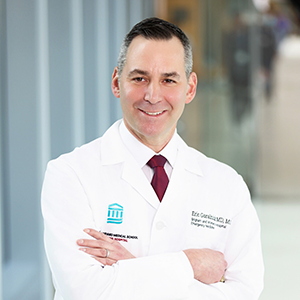
Eric Goralnick, MD, MS
Director, Military and Veterans Initiatives
Mass General Brigham
Eric Goralnick, MD, MS is the Director of Military and Veterans Initiatives, Mass General Brigham. His career has focused on improving patient care in two main areas: ensuring equitable access to healthcare for our most vulnerable patients and supporting collaborations between the civilian and military medical communities. He has served in various operational roles at the departmental, hospital, and system levels within Brigham and Women’s Hospital and Mass General Brigham.
He is an Associate Professor of Emergency Medicine at Harvard Medical School and the faculty lead for the Harvard Medical School Civilian Military Collaborative.
He has co-authored over 90 peer-reviewed articles, and his team’s work has been featured in many international, national, and local media outlets. His team at The Harvard Humanitarian Initiative launched the Ukrainian Save a Life initiative which was featured at the Clinton Global Initiative conference in 2022 and 2023. His team’s research has been funded by the National Institutes of Health, Department of Defense, The International Medical Corps and several private foundations.
He graduated from the United States Naval Academy, Tel Aviv University School of Medicine, Yale Emergency Medicine Residency, and the Harvard TH Chan School of Public Health. He recently completed the George W. Bush Institute Stand To Veteran Scholar program and is fiercely committed to supporting veterans and military families.
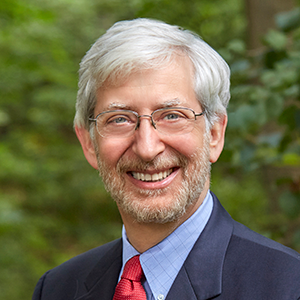
Robert M. Kolodner, MD, FACMI, LFAPA
Executive Vice President and Chief Medical Officer
ViTel Net
Robert M. Kolodner, MD is Executive Vice President and Chief Medical Officer for ViTel Net, provider of a highly configurable and interoperable, cloud-based, enterprise work and data flow platform with applications across the virtual care continuum. Dr. Kolodner’s 31 years of federal service and leadership included serving in the Department of Health and Human Services (HHS) as the National Coordinator for Health IT and as the as the national Chief Health Informatics Officer for the Department of Veterans Affairs’ (VA) broad range of health IT activities. At VA, he was the clinical champion and provided vision, direction, and effective leadership for the creation of VA’s award-winning suite of health IT solutions such as VistA – the world’s first successful large-scale Electronic Health Record (EHR) implementation – and VA’s Personal Health Record for veterans, My HealtheVet. For the first 15 years of his VA career, before working at the VA Central Office in Washington, DC, Dr. Kolodner was a front-line psychiatrist treating veterans at the VA Medical Centers in Atlanta, GA and Dallas, TX. His VA activities also included research and teaching. Dr. Kolodner has been on the faculty at the Emory University School of Medicine, the University of Texas Southwestern Medical Center at Dallas, the University of Maryland School of Medicine, and the College of Computing at the Georgia Institute of Technology. Dr. Kolodner is board certified in psychiatry, a Fellow in the American College of Medical Informatics, and a Lifetime Fellow in the American Psychiatric Association.

Adam Landman, MD, MS, MIS, MHS
Chief Information Officer and Senior Vice President of Digital
Mass General Brigham
Adam Landman, MD, MS, MIS, MHS is Chief Information Officer and Senior Vice President of Digital at Mass General Brigham, Associate Professor of Emergency Medicine at Harvard Medical School, and an attending emergency physician at Brigham and Women’s Hospital. He is an expert in health information technology and digital health design, development, and implementation. In his current role, he is responsible for technology solution delivery and support across all Mass General Brigham hospitals and practices. He works collaboratively to design and implement the future digital strategy such that front line needs for new digital capabilities are met and emerging technologies are considered while support is delivered highly effectively and efficiently.
Landman received his medical degree from Rutgers-Robert Wood Johnson Medical School and trained in Emergency Medicine at UCLA Medical Center. He was a Robert Wood Johnson Foundation Clinical Scholar at Yale University, where he also received his Masters of Health Sciences. He completed graduate degrees in Information Systems and Health Care Policy and Management at Carnegie Mellon University.
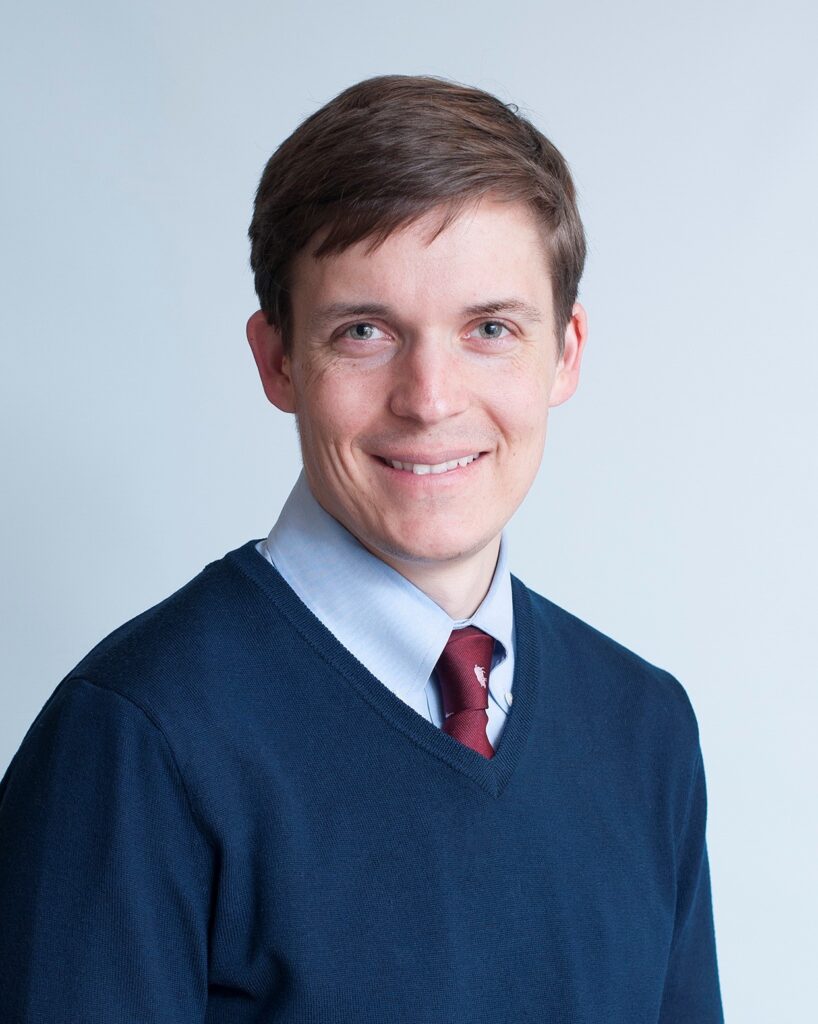
Thomas H. McCoy, MD
Enterprise Architect
Mass General Brigham
Dr. McCoy is the Director of Research at the Massachusetts General Hospital (MGH) Center for Quantitative Health (CQH) and Harvard Medical School Assistant Professor of Medicine and Psychiatry. He attended Dartmouth College and Cornell Medical School before completing the MGH Psychiatry residency, an informatics fellowship in the Center for Experimental Drugs and Diagnostics and serving as Chief Resident. His research focuses on development of computed phenotypes in, and applicable to, secondary use of healthcare data generated as part of routing care. He has applied computed phenotypes at the bedside for prediction and risk stratification and at the bench for genomics research.
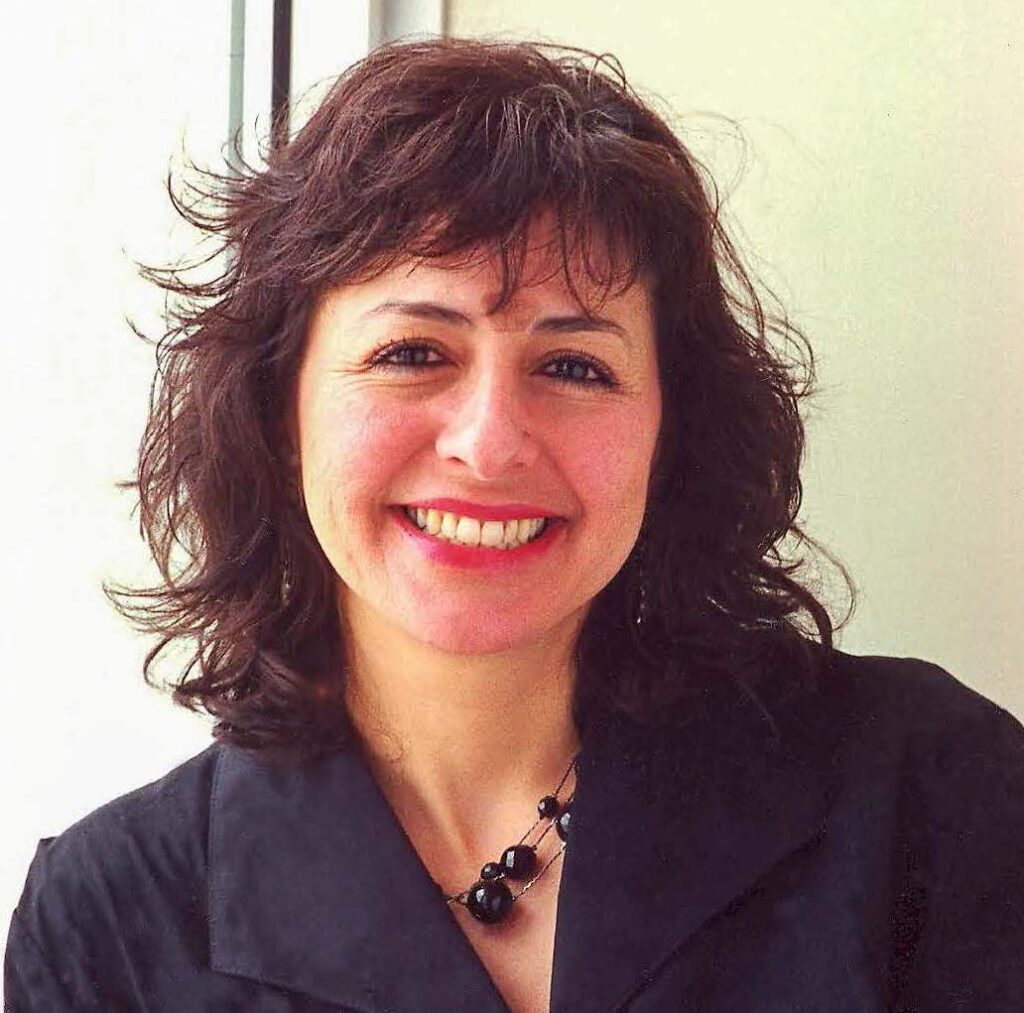
Hiyam Nadel, MBA, RN, CCG, FIEL
Director, Center for Innovations in Care Delivery
Massachusetts General Hospital
Hiyam M. Nadel, MBA, RN, is the Center for Innovations in Care Delivery Director at Massachusetts General Hospital (MGH). In this role, she is both a mentor and “incubator” of ideas for front-line caregivers, conceiving an idea for prototyping and beyond. She was an inaugural Johnson and Johnson Innovation Fellow.
Before accepting this position, Hiyam was essential in re-opening the MGH Obstetrics Department after a 40-year hiatus. Along with re-opening the Obstetrics division came the opportunity to implement a different nurse-care model and a “Medical Home” for Obstetrics. In addition, she has been instrumental in designing IT programs such as the “Ambulatory Patient Tracking System” and co-authored the design of the “OB EMR,” an electronic medical record subsequently sold to Hewitt Packard.
She was selected as Innovation Learning Network Changemaker, a distinction recognizing leaders trying to bring impactful change to their organization. The 2020 Extraordinary Women Advancing Healthcare Award from the Commonwealth Institute. This award recognizes ten remarkable women in Massachusetts who are emerging and inspiring leaders pioneering advances across health care and who demonstrate collaboration, mentor others, and encourage diversity. Most recently, Hiyam has co-authored a book, The Rebel Nurse Handbook: Inspirational Stories by Shift Disrupters, written several articles on open innovation, and speaks on several podcasts.
She earned a nursing degree from Northeastern University, a clinical genetics certificate from Brandeis University, and an MBA from Babson College focused on Innovation and Entrepreneurship. She is a founder and President of the Society of Nurse Scientists, Innovators, Entrepreneurs, and Leaders (SONSIEL).

Mr. David Osborn, AAMIF, BSEE, MEE
Senior Manager of Global Regulations & Standards
Philips
Mr. David Osborn, AAMIF, BSEE, MEE is the Senior Manager of Global Regulations & Standards for Philips where he is responsible for standards development across all of Philips Healthcare. He represents Philips at the national level and the US at international standards organizations on standards matters affecting the medical device industry. Heavily involved in international standards work, Mr. Osborn serves as Manager for the International Standards Organization (ISO) subcommittee TC 121/SC 3, Anesthesia and Respiratory Equipment, Respiratory devices and related equipment used for patient care. He is the Co-Convener or Secretary of several Joint Working Groups and is a US expert to several ISO and IEC working groups. He is active in the development of the 4th edition of IEC 60601-1, is the Convener of the JWG, alarm systems and was the Project Leader for the development of ISO 20417.
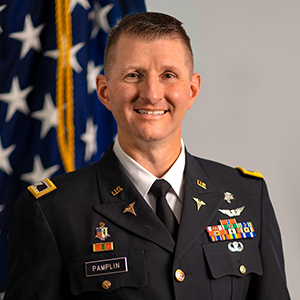
COL Jeremy C. Pamplin, MD, FCCM, FACP
Commander
Telemedicine and Advanced Technology Research Center, Fort Detrick, Maryland United States of America
Associate Professor of Medicine, Associate Professor of Military/Emergency Medicine
Uniformed Services University, Bethesda, Maryland, United States of America
COL Jeremy Pamplin has been the Commander of the Telemedicine and Advanced Technology Research Center since March 2020, a position he assumed following his roles as Director and Deputy Director starting in August 2018. Prior to this assignment, he was the Director of Virtual Critical Care at Madigan Army Medical Center. During that assignment, he began the first Army Tele Critical Care service and integrated it with the Navy’s Tele Critical Care service to form the Joint Tele Critical Care Network. Prior to that assignment, he was the Chief of Clinical Trials in Burns and Trauma and the Medical Director of the U.S. Army Burn Intensive Care Unit at the U.S. Army Institute of Surgical Research. He has served as medical director of surgical and medical ICUs since completing his Critical Care Medicine fellowship at Walter Reed Army Medical Center in 2007. COL Pamplin has deployed in support of Operation Iraqi Freedom and Operation Enduring Freedom: once to Iraq as the Chief of Critical Care for the 86th Combat Support Hospital and once to Afghanistan as the Deputy Deployed Medical Director for the 33rd Field Hospital and the American Contingent’s physician leader. He is the Principle Investigator of multiple projects investigating the impact of telemedicine and health information technology in austere, operational environments. He remains the medical director for the ADvanced VIrtual Support for OpeRational forces (ADVISOR) program that he helped create in order to deliver a range of operational virtual health capabilities to deployed forces. During the COVID-19 Pandemic, he led the effort to develop the National Emergency Tele-Critical Care Network to deliver critical care expertise to locations in need. He was inducted into the Oder of Military Medical Merit in 2021, has received a bronze star and three meritorious service medals. He received a bachelor of science from West Point in 1997 and his medical degree from the Uniformed Services University in 2001.
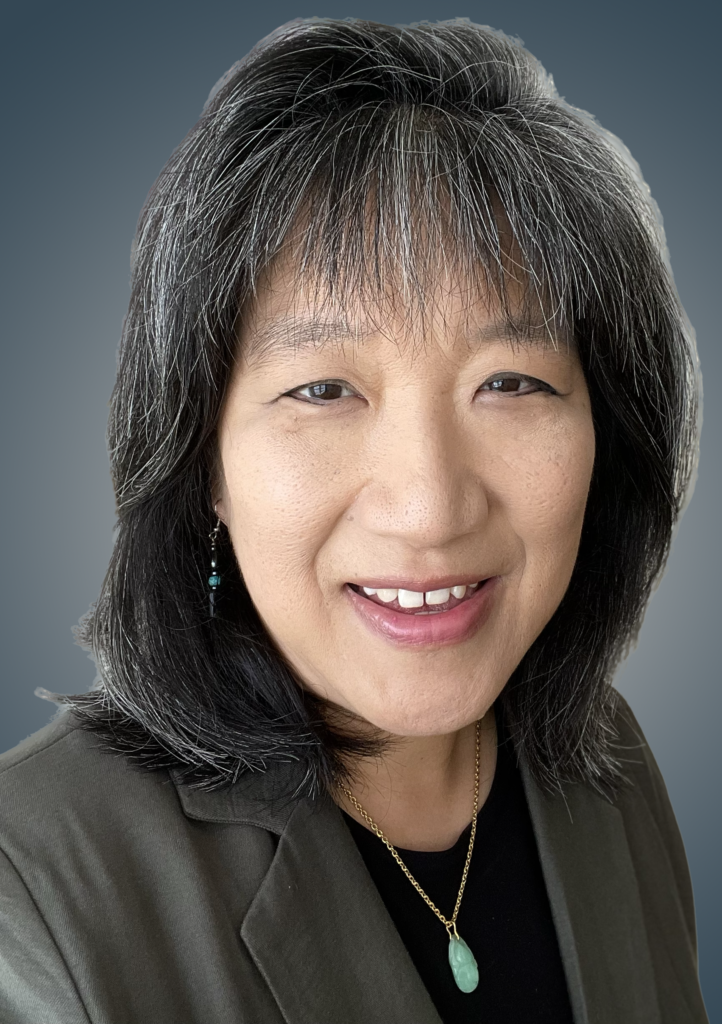
Grace Peng, PhD
Program Director
National Institute of Biomedical Imaging and Bioengineering National Institutes of Health
Grace C.Y. Peng, Ph.D. is the Director of Mathematical Modeling, Simulation and Analysis at the National Institute of Biomedical Imaging and Bioengineering (NIBIB) within the National Institutes of Health (NIH) in the US Department of Health and Human Services (DHHS). In this capacity she has programmatic oversight of extramural activities in these areas.
Dr. Peng received the B.S. degree in electrical engineering from the University of Illinois at Urbana, the M.S. and Ph.D. degrees in biomedical engineering from Northwestern University. She performed postdoctoral and faculty research in the department of Neurology at the Johns Hopkins University. In 2000 she became the Clare Boothe Luce professor of biomedical engineering at the Catholic University of America. Her research focused on developing computational models of the vestibular system in control of the head and neck, and analytical tools for studying the oculomotor system in patients with vestibular dysfunction. Since 2002, Dr. Peng has been a Program Director in the NIBIB, overseeing various programs promoting the development of mathematical and statistical modeling and analysis methods; medical simulation tools; and next generation engineering systems for rehabilitation, robotics, neuroengineering, and surgical systems. In 2003, Dr. Peng led the creation of the Interagency Modeling and Analysis Group (IMAG), which now consists of program officers from multiple federal agencies of the U.S. government. Since 2004, IMAG has supported funding initiatives targeted to multiscale modeling of biomedical, biological and behavioral systems. Since 2006, IMAG has facilitated the activities of the Multiscale Modeling Consortium of investigators. Dr. Peng also has served in leadership roles in the NIH SPARC (2014-2016), BRAIN Initiative (since 2014), Bridge2AI Program (since 2020) and ComPASS Program (since 2022). Dr. Peng is committed to promoting the development and use of intelligent tools and reusable data and models to accelerate biomedical research and translate scientific knowledge to the clinic and community. In 2020, she was inducted into the AIMBE College of Fellows.
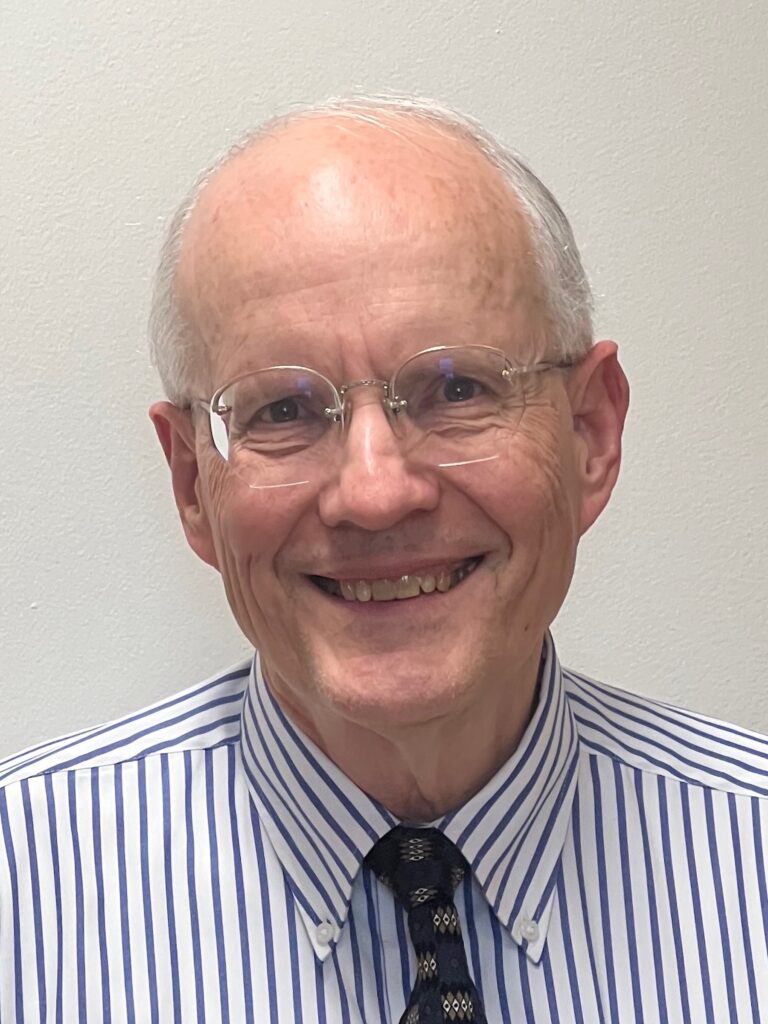
S. Mark Poler, MD
Chief, Central Region Anesthesia
Geisinger
Dr. Poler has been involved in interoperability since the 1980s. Having to interface monitoring devices with serial, parallel, and analog interfaces to perform clinical research gave an early appreciation for needed standardization. Operating system variations from MS-DOS to NeXTSTEP added complexities. Awareness of the Medical Information Bus (MIB) implementation to standardize use of RS-232 serial ports in the 1970s led to participation in the IEEE-1073 standards and successors (ISO-11073) starting in 1980. A prototype of “USB for medical devices” demonstrated at the American Society of Anesthesiologists in 1994 evoked responses like “Where has this been all my life! I need this!” He presented the history of the 1073/11073 standards at the 2004 MDPnP meeting. He was also a member of the MEDIX (IEEE-1153?) committee, a precursor of HL7, that fizzled but recognized the need for broad standardization of healthcare informatics. While important ideas were recognized and implemented, for various reasons they did not take root. Yet many ideas nascent in those early standards efforts have taken form in more recent developments. He is a past president of the Society for Technology in Anesthesia. During the COVID pandemic he contributed to literature for ventilator shortages by modeling splitting a single ventilator for two patients and development of a ventilator compressing an Ambu resuscitator using industrial parts driven by an Arduino processor. While interest in interoperability never waned, clinical necessities have taken precedence over direct technical engagements in recent years.
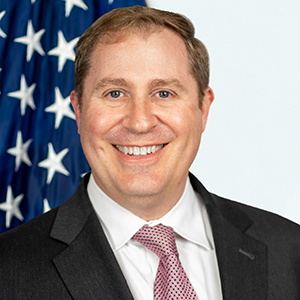
Matt Quinn
Science Director
Telemedicine & Advanced Technology Research Center
Matt Quinn is the Science Director for the Army’s Telemedicine & Advanced Technology Research Center and leads efforts by TATRC’s research & development teams to automate casualty care. Matt has over 20 years of experience in health technology across federal agencies including the DoD, HRSA, FCC, where he was the first Director of Healthcare Initiatives, NIST and AHRQ, and in the private sector where he was Managing Director for Healthcare & Life Science for Intel Corporation. He has testified before the Senate and the House of Representatives, been recognized multiple times with the FedHealthIT100 award for driving change and advancement in the Federal Health IT ecosystem, received the HHS Distinguished Service Award, the highest honor granted by the department, the Army Meritorious Civilian Service Medal and the first ever National Health IT Collaborative for the Underserved “Champion of Diversity” award. Matt earned an engineering degree from the United States Military Academy at West Point and an MBA from Colorado State University.
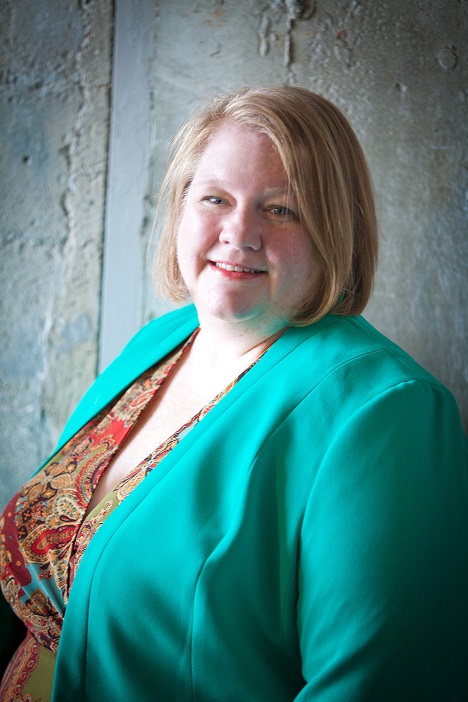
Tracy Rausch, CCE
Chief Innovation Officer
DocBox, Inc.
Tracy Rausch, CCE is the founder and Chief Innovation Officer of DocBox. Tracy has a 20-year career in research, design, and integration of technologies into healthcare systems from the manufacturer, delivery, and research roles in both the private and public sectors. DocBox is a medical device company developing an open platform that enables healthcare providers to deploy innovative technology to improve efficiency, reduce cost, and improve patient safety. For the past decade, she has been the PI for over $19M in federally funded Research, Development, Test, and Evaluation Funding from the USARDC (formerly USAMRMC), NIST, and NIH related to medical device interoperability, safety-critical medical systems platform design, regulatory science of medical devices systems of systems, and autonomous medical systems. Before DocBox, Tracy served as a research engineer and a clinical systems engineer for the federal government and a large healthcare delivery organization.
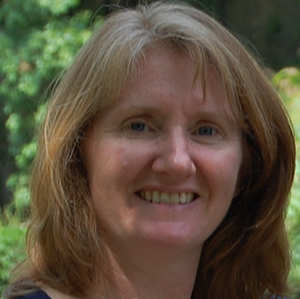
Linda Ricci
Deputy Director
Office of Strategic Partnerships and Technology Innovation, United States Food and Drug Administration
Linda Ricci began her career developing artificial intelligence solutions in the defense industry before moving to the medical device industry as a software engineer. She helped to develop several diagnostic cardiology devices and has participated in all phases of product life cycle development. Ms. Ricci has held several roles since joining the FDA in 2005 across the product lifecycle and currently is the Deputy Director for the Office of Strategic Partnerships and Technology Innovation (OST). During her time at FDA she has led activities in several critical areas for the center including cybersecurity, digital health, and emergency response. She has degrees in Electrical Engineering, Medical Engineering, and Public Health.
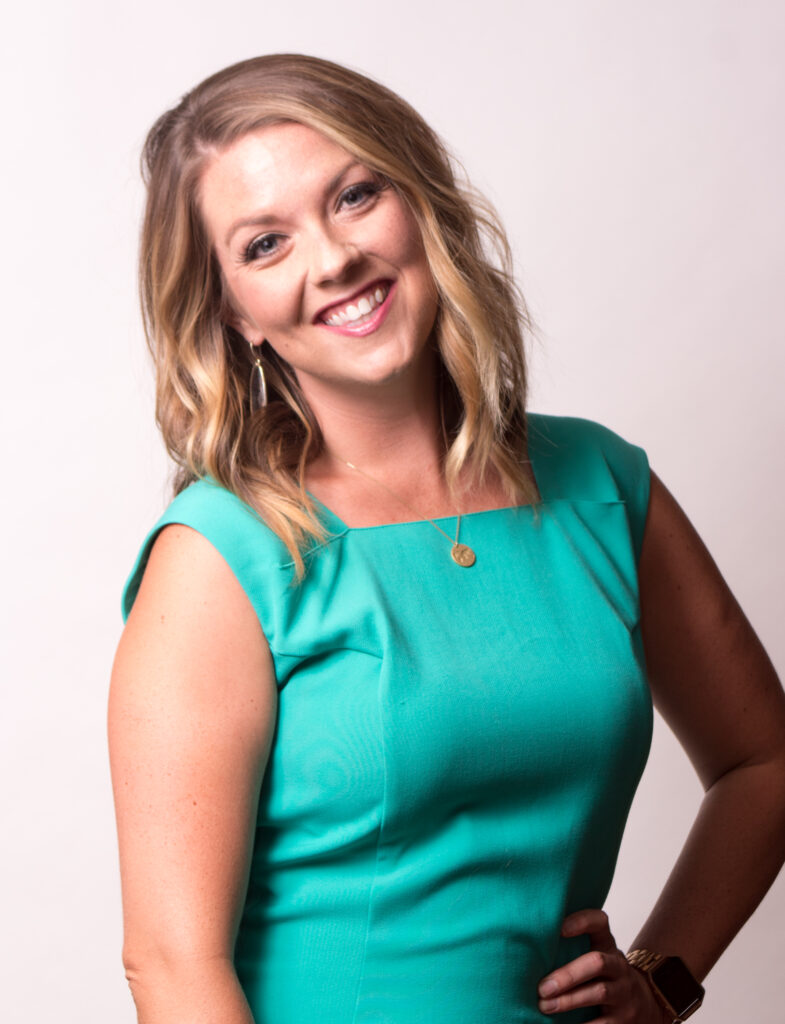
Caitlyn Scales, PhD
Co-founder and Strategic Consultant
Second Hub Collaborative
Caitlyn Scales, PhD, is the Co-Founder of Second Hub Collaborative, a consulting firm specializing in sustainable growth strategies for organizations focused on innovation and social impact. With a passion for systems change and human-centered design, she leverages her extensive national and global network to support mission-driven growth, development, and strategy across multiple sectors. Caitlyn brings nearly 20 years of experience as an educator and master facilitator, including roles as an instructor and mentor at Washington State University and Boise State University. She is continually inspired by the diverse and innovative opportunities she encounters through her consulting work and the long-term partnerships with organizations dedicated to empowering a better future for all.
Caitlyn is a Chicago native who received her B.S. and M.S. from Indiana University, and received her Ph.D. in Cultural Studies and Social Thought in Education from Washington State University. Caitlyn happily resides in New Orleans, LA with her husband and their pup.

Loretta Schlachta-Fairchild, Ph.D., RN, FACHE, Lieutenant Colonel (retired) US Army Nurse Corps
Principal and President
iTelehealth Inc.
Dr. Loretta Schlachta-Fairchild is Principal and President of iTelehealth Inc., conducting consulting in advanced technologies and future healthcare delivery systems such as telehealth, AI, autonomous interactive medical devices. Previously, she served as the Health Information Technology/Informatics Research Portfolio Manager for the Department of Defense, Defense Health Agency, serving at Medical Research and Materiel Command (MRMC) Joint Program Committee-1 at Fort Detrick, MD. Dr Schlachta-Fairchild coordinated a $200 Million research investment with strategic Health Information Technology (HIT) and Informatics leaders in Army, Navy, Air Force, and Marines, as well as research experts in DoD and Federal Agencies to develop, select and monitor a research portfolio of studies aimed to improve quality, efficiency, and patient outcomes for military healthcare in theater/wartime and in peacetime. She insured military HIT/Informatics research meets the strategic current and future needs of the military healthcare system. Dr Schlachta-Fairchild is a retired US Army Nurse Corps officer, a researcher, healthcare administrator and an international expert in telehealth, telemedicine and telenursing. Dr. Schlachta-Fairchild has over 70 US and international publications and numerous presentations. Her Bachelors Degree in Nursing is from University of Maryland/Walter Reed Army Institute of Nursing; Masters Degree in Healthcare Administration from Southwest Texas State University, San Marcos, TX, and Ph.D. from Medical College of Georgia, Augusta, Georgia. Dr. Schlachta-Fairchild is a Fellow in the American College of Healthcare Executives and served as Co-Founder & First Chairperson of the Telenursing Working Group of the International Council of Nurses (ICN) in Geneva, Switzerland. Dr Schlachta-Fairchild is an avid hockey fan and served as Co-Founder and Treasurer for the Minnesota Warriors Ice Hockey Team, a nonprofit dedicated to using hockey as therapy for wounded/disabled Veterans from all wars.
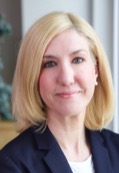
Sara Silacci
Principal
Margin4Mission, LLC
Sara Silacci is a social entrepreneur with over 25 years of experience in driving mission-oriented strategic growth initiatives. She is deeply passionate about creating sustainable programs and profitable businesses that enable healthcare transformation, and in 2023, she founded Mission4Margin to achieve this vision. Sara collaborates with a diverse portfolio of clients across both the private and public sectors, offering invaluable guidance on where to strategically invest, both internally and externally, to diversify revenue, expand impact, and forge a lasting future through entrepreneurship, innovation, and sound business strategy.
With a distinguished background as the former Chief Strategy Officer for Research and Innovation at Massachusetts General Hospital, a founding member of Mass General Brigham, Sara played a pivotal role in advancing the growth and impact of the largest hospital system-based research enterprise in the U.S. This enterprise boasted an annual budget exceeding $2.3 billion.
Dedicated to advancing healthcare innovation for the benefit of patients and providers, Sara actively serves on multiple boards and professional associations. She currently holds an Executive Member position on the Board of Directors for CarePassport and has previously contributed her insights as a board member for Fern Health and the National Comprehensive Cancer Network Foundation.
Sara’s work has garnered several prestigious awards, including the Partners Healthcare H. Richard Nesson Award for Excellence in Patient Safety and Innovation and recognition as one of Boston Business Journal’s Top 40 Under 40.
As a co-author of numerous peer-reviewed healthcare publications spanning digital health, telemedicine, Electronic Health Records (EHRs), and COVID-19, Sara consistently demonstrates her unwavering commitment to advancing critical healthcare discourse.
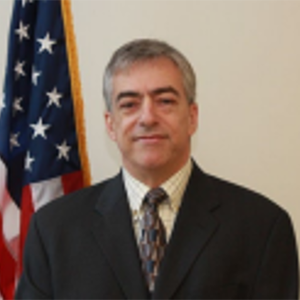
Sandy Weininger, PhD
Senior Biomedical Engineer
United States Food and Drug Administration
Dr. Weininger’s current scientific and regulatory focus is the safety and performance assessment of sensors and actuators for physiologic systems, and examining complex interoperable systems to understand unsafe interactions. He works with standards development organizations, including UL, AAMI, IEC and ISO to construct both horizontal and vertical safety standards. He is actively involved in developing and delivering courses on achieving safety in medical devices using systems engineering principles. He is member of AAMI/UL 2800 – Interoperable Systems, co-chair AAMI’s Interoperability Workgroup, co-chair of JWG10 of ISO TC 121/SC3 – Oximeters, and one of FDA’s liaison to IEC TC 62 and SC 62A, committees responsible for safety of electromedical equipment. Dr. Weininger was co-chair of the AAMI COVID Response Team leading to the development of Committee Reports to address emergency use device safety for ventilators and resuscitators. Dr. Weininger works with academic partners to develop methods for the safety and performance evaluation of interoperable systems.
Dr. Weininger has been at the US FDA, Center for Devices and Radiological Health, in the Office of Science and Engineering Laboratories since 1990 when he joined FDA to work on the a standard and test method for the FDA Infant Apnea Monitor Performance standard, the first mandatory medical device performance standard. Currently, Dr. Weininger is a senior engineer with the Division of Biomedical Physics of the Office of Science and Engineering Laboratories within the FDA’s Center for Devices and Radiological Health. Dr. Weininger’s areas of concentration are design and engineering of electronic systems and signal processing as applied to small physiological signals. His responsibilities include supporting the regulatory process with technical consults related to electrical performance and safety, risk management activities, leading industry-government partnership efforts to develop consensus standards, performing forensic engineering analyses, and developing test methods. He provides expert consulting reviews on electrical safety and essential performance aspects of devices, closed loop physiologic control systems, and risk management. He engineered the signal acquisition system for the Apnea Monitor Performance Standard and supporting simulation-based test methods, and was the lead engineer and system developer for the NIH Fox (fetal oximetry) trial recording system to assess the effectiveness fetal saturation monitoring.
Dr. Weininger received his BSEE and MS/BME from Drexel University with a research thesis focusing on the properties of the electrode-tissue interface. He received his Ph.D. in Bioengineering from the University of Pennsylvania where he developed a system to evaluate the behavioral organization of the newborn nutritive sucking response, and specialized in signal processing and control systems. Prior to joining FDA, he worked for Carter Wallace, Inc., in Cranbury, NJ where he was responsible for setting up and developing their biosensor research
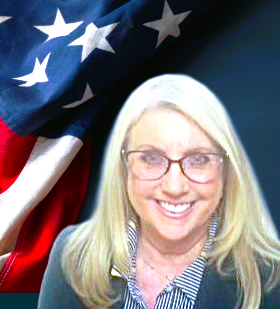
Therese West, DNP, APN, BC
Defense Health Agency
Combat Casualty Care Research Program
Dr. Therese West serves as the Civilian Deputy Director of the Combat Casualty Care Research Program (CCCRP) at the Medical Research and Development Command (MRDC) in the Defense Health Agency (DHA). The mission of this program is to optimize survival and recovery in battlefield injured service members through requirements driven, innovative research across the echelons of care. The CCCRP is responsible for the planning, programing, budgeting, and overseeing the execution of the trauma research for Army En Route Care and the DHA investments in prehospital care, from triage to damage control surgery, prolonged care and autonomous care and evacuation.
Dr. West has been with the Combat Casualty Care Research Program (CCCRP) for the past eight years. Therese is a Doctorate prepared Nurse Practitioner with over two decades of clinical, academic, and research experience. Her training also includes DoD Acquisitions Practitioner Level certification in Engineering and Technology Management and the Congressional Operations for Acquisitions Course through the Government Affairs Institute.
In addition to being a Licensed Health Care provider, Dr. West has published journal articles and book chapters and has served as policy developer and Chief Editor of an Evidenced Based Clinical Practice Guideline Series for a 5000-member professional organization. As a subject matter expert and senior program representative, Dr. West has supported the Combat Casualty Care Community Nationally and Internationally.
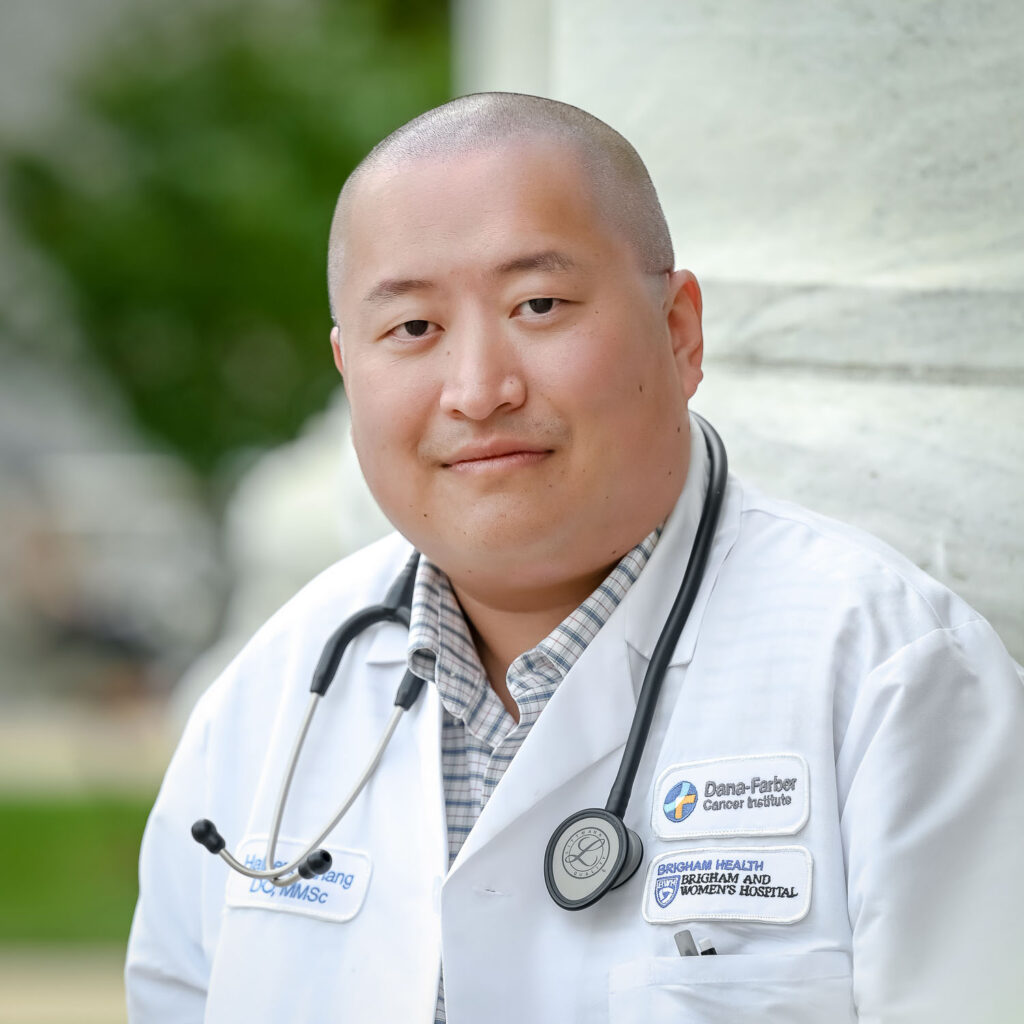
Mark Zhang, DO MMSc
Chief Innovation Officer
Veterans Health Administration
Haipeng (Mark) Zhang DO, MMSc, FAMIA, is the Chief Innovation Officer for the Veterans Health Administration. He was previously the Associate Chief Medical Information Officer of Digital Innovation and the Medical Director of the Digital Innovation Hub at Brigham and Women’s Hospital, Associate Program Director of the Clinical Informatics and Innovation Fellowship at Mass General Brigham, Palliative Care consultant at Dana-Farber Cancer Institute, and Instructor of Medicine at Harvard Medical School.
He is the founder of Palliative Care Fast Facts for iOS and Android mobile applications, the co-founder of Cake, a venture backed company focused on advance care planning, and also founded and was the first president of American Medical Informatics Association Clinical Informatics Fellows (ACIF), the national organization for clinical informatics fellows. He also founded and is the president of the American Medical Extended Reality Association (AMXRA), the medical society for medical extended reality.
In his current role as a leader in innovation at Veterans Health Administration, he is the chief of the Office of Healthcare Innovation and Learning which functions as the engine of innovation for VHA.